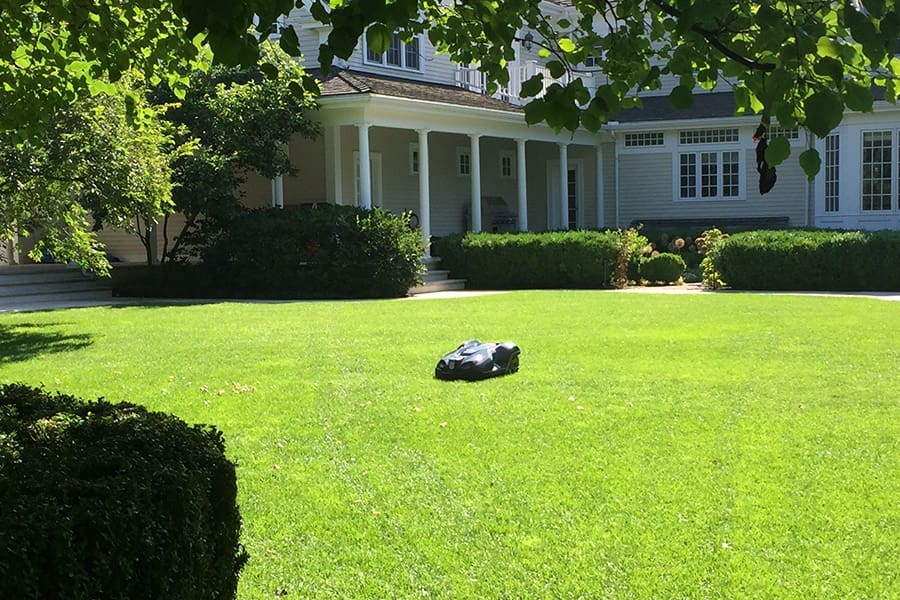
Does the landscape industry have a labor shortage? No doubt. Can robot mowers help? Phil Allen, professor at Brigham-Young University in Provo, Utah, discussed just that on Thursday morning during the TED Talks session at LANDSCAPES.
Autonomous, e.g. robotic, lawn mowers offer a number of sustainability and labor-reducing benefits. Despite increasing popularity through Europe, robotic mowers are just beginning to gain marketshare in the U.S. Based on an informal survey of NALP members, early adopters of robotic mowers are fiding success in maintaining a variety of landscapes, while others provide challenges. Let’s take a look at Allen’s findings.
How Are Robotic Mowers Working for Landscape Pros?
Can robot mowers help landscape professionals with a labor shortage and increase productivity at the same time?
NatureWorks Landscape Services Inc., a high-end, full-service landscape management company headquartered in Walpole, Massachusetts, incorporated automowing into their service portfolio two to three years ago.

Matthew Gramer, NatureWorks’ president, says the robotic mowers that NatureWorks employs are compact and independently operational, navigating the lawn using built-in sensors to detect obstacles. By operating daily, the automowers keep blades of grass at an ideal length of two and a half inches, and even encourage thicker, greener lawns by recycling the micro-clippings back into the soil. The units, which stay put at their assigned properties for the season, also run on rechargeable battery power, eliminating noise. As a result, the robotic mowers can even run at night, keeping lawn maintenance out of sight and out of mind.
To get started, NatureWorks installs a boundary wire, much like an electric dog fence, around the perimeter of the client’s lawn. This way, the robot stays put. Once it’s ready to run, the automower connects to a phone application that dispatches alerts directly to NatureWorks if the unit comes into contact with any issues. Reporting in Boston Magazine, NatureWorks says they have 20 operating automowers and a 100 percent satisfaction rate among clients who have implemented the service into their regular lawn maintenance routine.
Allen determined that the pros of robotic mowers are:
- Reduced labor
- Cuts nice
- Fun to watch
- Seem to be safe
- Look cool
And the cons:
- Doesn’t cut edges as well
- Can’t cut high enough for grasses that need higher cuts like bluegrass and fescue
How Robot-Mower-Friendly Are Lawns in Typical Landscapes?
Allen looked at the submissions for NALP’s Awards of Excellence program to study typical landscapes across the country and determine if robotic mowers could take care of these properties.
Out of 117 properties studied, 82 were not robot mower friendly.
The top obstacles:
1. Separated lawn areas
2. Obstructions at lawn edges
3. Obstructions in lawns
His suggestion for solutions: Be more intentional about landscape design. Allen’s recommendation: “We need to design landscapes that are maintenance friendly to save costs overall.”
Have you tried robotic mowers on your clients’ lawns? Tell us more about it by sending a note to nicole@landscapeprofessionals.org.


Comments are closed.